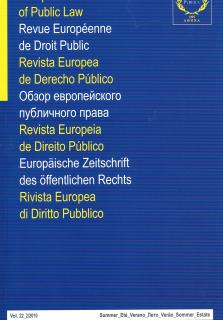
Jurisprudence
Constitutional / Constitutionnelle
2008
France
The year 2008 has given the opportunity to the Constitutional Council to repeatedly express itself on the extent of the norms of reference: refusal to recognise a new fundamental principle recognised by the laws of the Republic. The Council has also reminded that the unawareness of the statute of the National Assembly cannot render the legislative procedure contrary to the Constitution. The Council has, on the contrary, recognised the quality of “exigency of constitutional value” to the good use of public funds (dec. 567 DC). Concerning the techniques of control, the Constitutional Council has innovated by integrating for the first time in the reasoning of a decision the deferment of the declaration of non-compliance with the Constitution. The case law of 2008 needs also to be commented regarding legal certainty. Thus, as far as the subject of the quality of law is concerned, the Council has mobilised twice the constitutional objective of intelligibility and of accessibility of the law. Within the framework of the examination of the law establishing a preventive detention, the Council has denied to that measure the character of “penalty”, while censuring the retroactivity of the measure without however indicating the norm of reference on which this censuring was founded. It has also applied that principle in many decisions, concerning legislative validations, codification and in order to censure contradictory legislative provisions (dec. 567 DC). Besides a classical application of the principle of equality, the Council has reminded through a proviso of interpretation the individual character of the right to strike and made explicit the extent of the precautionary principle.
L’année 2008 a donné l’occasion au Conseil constitutionnel de se prononcer à plusieurs reprises sur l’étendue des normes de référence: refus de reconnaître un nouveau principe fondamental reconnu par les lois de la République. Le Conseil a également rappelé que la méconnaissance du règlement de l’Assemblée nationale ne saurait rendre la procédure législative contraire à la Constitution. Le Conseil a en revanche reconnu la qualité d’“exigence de valeur constitutionnelle” au bon usage des deniers publics (déc. 567 DC). Quant aux techniques de contrôle, le Conseil constitutionnel a innové en inscrivant pour la première fois dans le dispositif d’une décision le report dans le temps de la déclaration de non-conformité à la Constitution. La jurisprudence de l’année 2008 appelle également des commentaires en matière de sécurité juridique. Ainsi, au sujet de la qualité de la loi, le Conseil a mobilisé à deux reprises l’objectif constitutionnel d’intelligibilité et d’accessibilité de la loi. Dans le cadre de l’examen de la loi établissant une rétention de sûreté, le Conseil a dénié à cette mesure le caractère de “peine”, tout en censurant la rétroactivité du dispositif sans pour autant préciser la norme de référence fondant cette censure. Il a également fait application de ce principe dans plusieurs décisions, à propos des validations législatives, de la codification et pour censurer des dispositions législatives contradictoires (déc. 567 DC). Outre une application classique du principe d’égalité, le Conseil a rappelé par une réserve d’interprétation le caractère individuel du droit de grève et précisé la portée du principe de précaution.





















